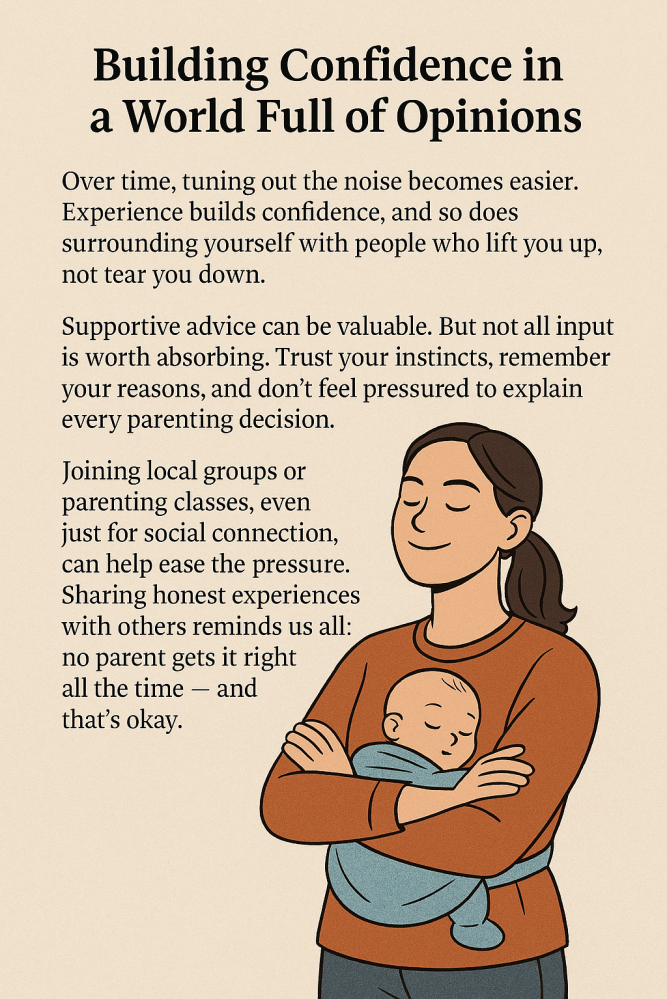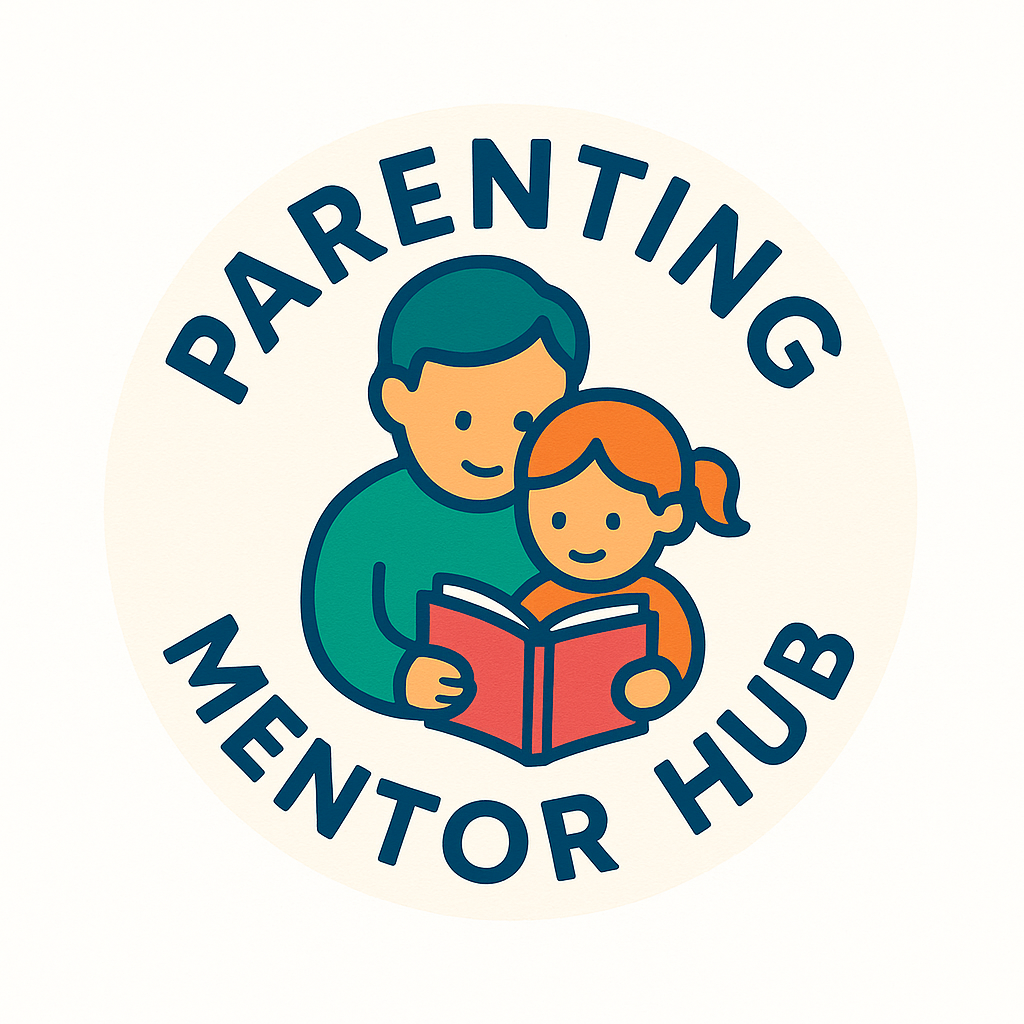
Raising children comes with plenty of challenges – and plenty of opinions. Unsolicited parenting advice is everywhere: at family gatherings, in the park, and all over social media. It often appears when confidence is just beginning to grow or when a parent is trying something that goes against the grain.
Sometimes the advice is well-meaning. Sometimes it’s outdated. And sometimes it’s just plain unhelpful.
So how do you handle it – —especially when it contradicts your values, adds unnecessary pressure, or makes you second-guess yourself? Here’s a closer look at where unsolicited advice tends to come from, how it affects parents, and what you can do to stay calm, confident, and focused on what really matters: your child’s wellbeing.
Why Do People Offer Unsolicited Parenting Advice?
Most people mean well. Some genuinely want to help. Others are trying to validate their own parenting choices or simply repeating what worked for them decades ago.
Here are a few common reasons people can’t resist offering input:
- Desire to be helpful – They want to share what worked for them or show they care.
- Need for validation – Offering advice can make others feel more secure in their own parenting approach.
- Generational habits – Many repeat what they grew up with, assuming it’s still the “right” way.
- Outdated information – Some older relatives may not realise how much parenting guidance has changed over time.
Real-Life Examples Parents Might Recognise
Unsolicited advice turns up in everyday moments – often when least welcome:
- Bedtime routines
“You really should let him cry himself to sleep. My children all turned out perfectly.”
Comments like these, often from relatives, can undermine gentle routines built around comfort and connection. - Feeding choices
“Why are you spending so much time on baby-led weaning? It’s much easier to spoon-feed.”
Online forums can quickly spiral into judgement zones, even when you’re simply sharing what works for your child. - Public tantrums
“He needs a firm hand. My mother would’ve sorted that out with a quick smack.”
Hearing outdated or harsh opinions during stressful moments only adds to the pressure.
How Unwanted Advice Affects Parents
Even when meant kindly, unsolicited advice can have a real emotional impact. It can:
- Spark guilt or self-doubt
- Create tension with loved ones
- Interrupt precious moments with your child
- Fuel unhealthy comparisons
Over time, it becomes easy to second-guess even simple choices, like how to handle a bedtime or what snacks to pack. And that mental load? It’s exhausting – and unnecessary.
What Helps: Practical Strategies That Work
Handling unsolicited advice doesn’t mean snapping back or starting debates. It means staying grounded in your own values while preserving your peace (and your relationships). These strategies help:
- Take a breath before responding – Staying calm keeps things respectful, especially in front of children.
- Use a polite, non-committal reply – Try “Thanks, I’ll think about it” or “That’s an interesting perspective” to end the conversation quickly.
- Set gentle boundaries – If advice keeps coming, it’s okay to say, “We’re happy with our current approach.”
- Avoid certain topics – With persistent advice-givers, it may help to steer conversations away from parenting altogether.
- Spend more time with supportive people – Seek out those who listen without judging or correcting.
- Stick to trusted sources – NHS guidance, healthcare professionals, and reputable parenting books tend to beat hearsay every time.
- Trust your instincts – Nobody knows your child better than you do.
Ready-to-Go Responses (When You’re Caught Off Guard)
Having a few calm, confident phrases ready can take the stress out of awkward encounters:
- “Thanks, I’ll consider that.”
- “This is what’s working for us right now.”
- “We’ve made a decision that suits our family.”
- “Every child is different, so we’re following their lead.”
If the advice keeps coming, it’s perfectly fine to change the subject with:
“Let’s talk about something else.”
When the Advice Comes From Family
Advice from close relatives – especially grandparents – can be the hardest to navigate. The emotional ties run deep, and there’s often a sense that they mean well. Still, repeated criticism or outdated advice can wear down even the most confident parent.
Here’s what helps:
- Have a gentle but honest conversation in private.
- Explain how repeated advice affects your confidence or causes confusion.
- Share updated guidance or resources if they’re open to it.
- Choose your battles – let smaller comments go when possible.
The goal is to preserve the relationship while making space to parent in your own way.
Managing Advice Online and on Social Media
Online parenting groups can be a brilliant source of support – or a breeding ground for judgement. To keep the experience helpful:
- Mute or block people who repeatedly criticise or push their views.
- Avoid threads that escalate into debates or shaming.
- Take breaks from forums or parenting pages when needed.
- Focus on advice from people who share similar values.
Offline support – whether it’s a friend, a baby group, or a local parent meetup – can be far more helpful and uplifting.
Building Confidence in a World Full of Opinions
Over time, tuning out the noise becomes easier. Experience builds confidence, and so does surrounding yourself with people who lift you up, not tear you down.
Supportive advice can be valuable. But not all input is worth absorbing. Trust your instincts, remember your reasons, and don’t feel pressured to explain every parenting decision.
Joining local groups or parenting classes, even just for social connection, can help ease the pressure. Sharing honest experiences with others reminds us all: no parent gets it right all the time – and that’s okay.

FAQs: Quick Answers to Common Worries
What if the advice is actually helpful?
Stay open-minded! Just cross-check with trusted sources before making changes.
Is it rude to ignore advice?
No. After a polite response, it’s completely okay to move on.
How do I handle advice that feels judgemental or hurtful?
Stay calm, explain your perspective, and distance yourself from that person if needed.
What if I worry about being judged for ignoring advice?
Remember: your child’s wellbeing matters more than someone else’s opinion. You don’t need to justify decisions that work for your family.
Should I give advice to other parents?
Only if it’s asked for. Otherwise, a listening ear or words of encouragement often help far more than a list of suggestions.
Final Thoughts
Unsolicited advice is part and parcel of parenting – but it doesn’t have to derail your confidence. With a few strategies and a focus on what matters most, it becomes easier to tune out the background noise and tune in to your child.
Writing this made me smile – I’m fully aware that offering parenting tips about how to handle unwanted advice could seem a bit ironic. But unlike a stranger in a queue or a pushy relative, I’m here only if you want me to be. Take whatever feels helpful, and leave the rest.
Your family, your rhythm, your choice.

